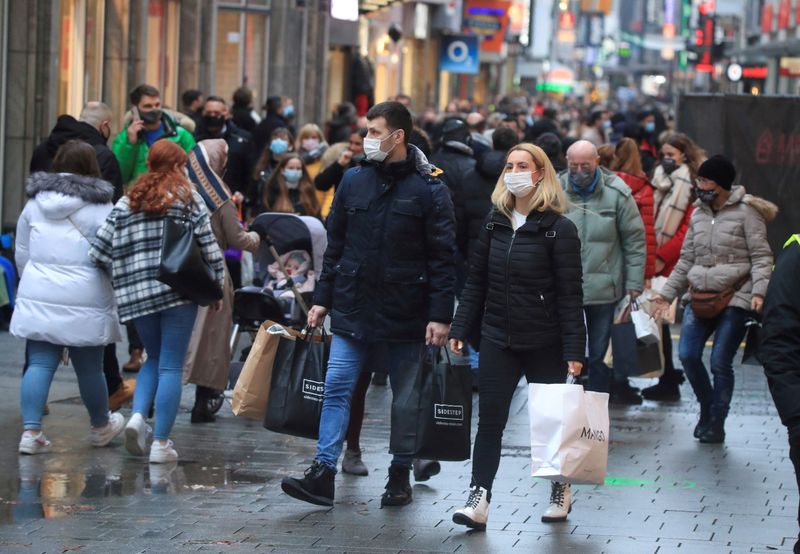BERLIN (Reuters) -German annual inflation slowed in January but was still higher than expected by analysts and well above the European Central Bank's price stability target of 2% for the euro zone as a whole, preliminary data showed on Monday.
Consumer prices, harmonised to make them comparable with inflation data from other European Union countries (HICP), rose 5.1% year on year compared with 5.7% in December, the Federal Statistics Office said.
The national consumer price index (CPI) rose by 4.9% on an annual basis, easing from 5.3% in December.
A Reuters poll of analysts had forecast the CPI rate at 4.3% and the HICP figure at 4.7%.
"The decline in the inflation rate is only due to the fact that the effect of the temporary reduction in VAT in 2020 no longer distorts the year-on-year comparison upwards as in the previous months," Commerzbank (DE:CBKG) economist Marco Wagner said.
At the same time, supply bottlenecks and high energy prices significantly reduced the expected positive effect, analysts said.
As surveys of German and foreign companies have so far shown no significant easing of supply chain disruption, the year-on-year CPI rates are likely to stay above 4.5% for a few more months, said Michael Heise, chief economist at HQ Trust.
"In view of the serious geopolitical tensions with Russia, betting on a desired drop in energy prices in the near future appears to be wishful thinking," Heise added.
Euro zone inflation hit 5% last month, the highest on record for the 19-country currency bloc, but the ECB expects it back under its 2% target in both 2023 and 2024, even without policy tightening, as one-off pressures ease.
ECB chief economist Philip Lane told a Lithuanian newspaper last week the central bank would tighten policy if inflation was seen holding above its target, but such a scenario appears less likely for now.
The ECB meets next on Thursday but no policy move is expected as the bank unveiled a complex package of measures in December.

Contrary to earlier projections, the German Economy Ministry said last week it expects consumer price inflation to rise further this year.
The head of Germany's IG Metall union said on Thursday that higher real wages would be a key goal in upcoming collective bargaining rounds in the iron and steel, as well as the metal and electrical, industries.